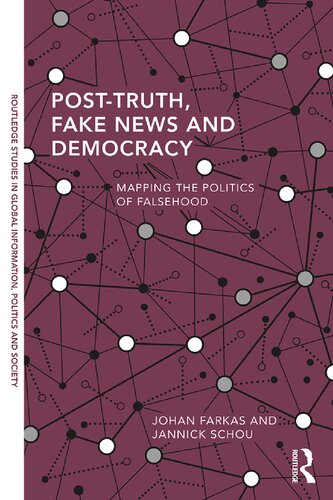

Most ebook files are in PDF format, so you can easily read them using various software such as Foxit Reader or directly on the Google Chrome browser.
Some ebook files are released by publishers in other formats such as .awz, .mobi, .epub, .fb2, etc. You may need to install specific software to read these formats on mobile/PC, such as Calibre.
Please read the tutorial at this link: https://ebookbell.com/faq
We offer FREE conversion to the popular formats you request; however, this may take some time. Therefore, right after payment, please email us, and we will try to provide the service as quickly as possible.
For some exceptional file formats or broken links (if any), please refrain from opening any disputes. Instead, email us first, and we will try to assist within a maximum of 6 hours.
EbookBell Team

0.0
0 reviewsWestern societies are under siege, as fake news, post-truth and alternative facts are undermining the very core of democracy. This dystopian narrative is currently circulated by intellectuals, journalists and policy makers worldwide. In this book, Johan Farkas and Jannick Schou deliver a comprehensive study of post-truth discourses. They critically map the normative ideas contained in these and present a forceful call for deepening democracy.
The dominant narrative of our time is that democracy is in a state of emergency caused by social media, changes to journalism and misinformed masses. This crisis needs to be resolved by reinstating truth at the heart of democracy, even if this means curtailing civic participation and popular sovereignty. Engaging with critical political philosophy, Farkas and Schou argue that these solutions neglect the fact that democracy has never been about truth alone: it is equally about the voice of the democratic people.
Post-Truth, Fake News and Democracy delivers a sobering diagnosis of our times. It maps contemporary discourses on truth and democracy, foregrounds their normative foundations and connects these to historical changes within liberal democracies. The book will be of interest to students and scholars studying the current state and future of democracy, as well as to a politically informed readership.